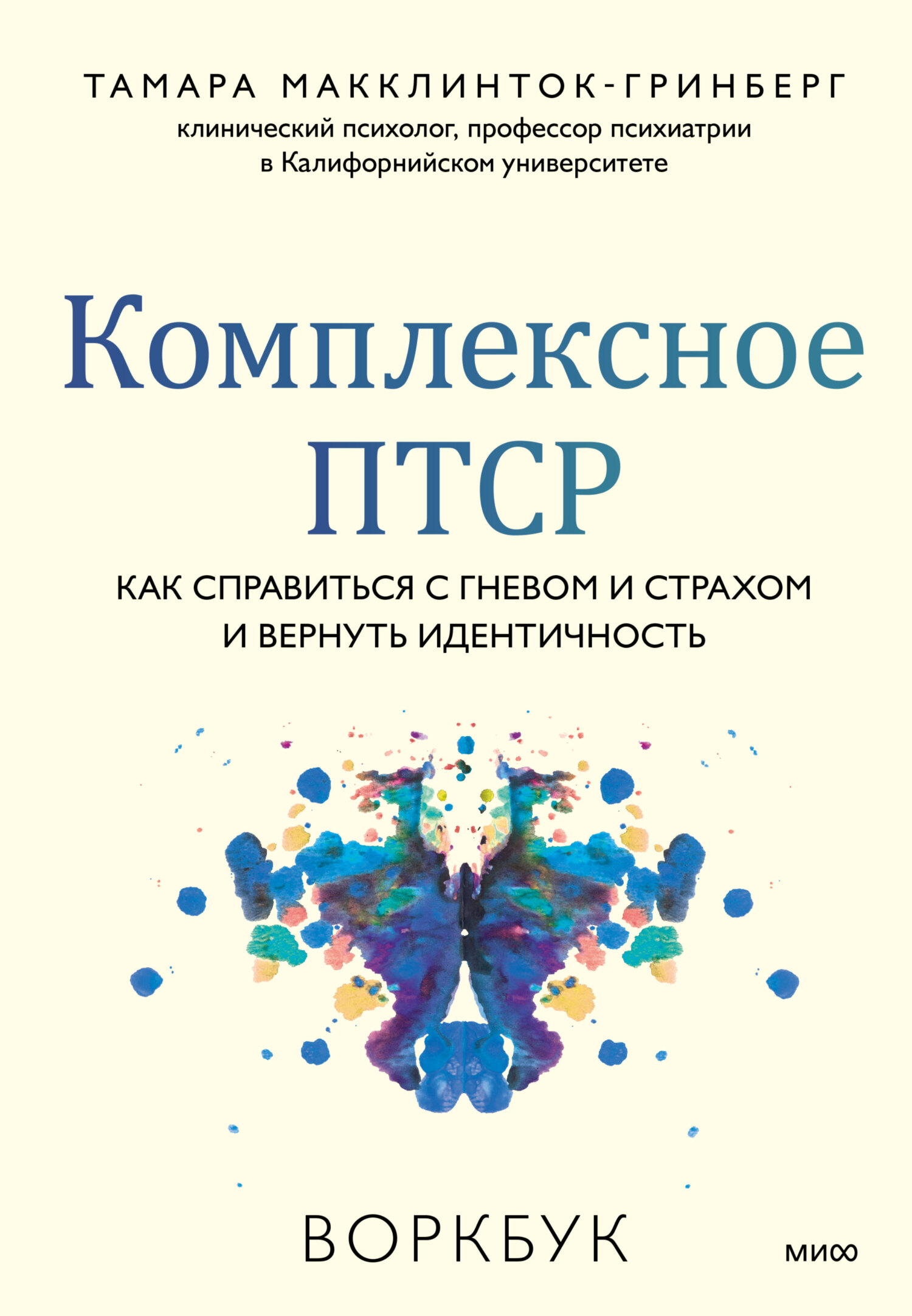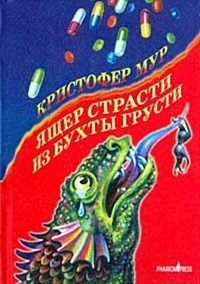Комплексное ПТСР. Как справиться с гневом и страхом и вернуть идентичность. Воркбук - Тамара Макклинток-Гринберг

Помощь проекту
Комплексное ПТСР. Как справиться с гневом и страхом и вернуть идентичность. Воркбук читать книгу онлайн
Des Jarlais, D. C. (2017). Harm reduction in the USA: The research perspective and an archive to David Purchase. Harm Reduction Journal, 14, 51. https://doi.org/10.1186 /s12954-017-0178-6.
Dimeff, L. A., Baer, J. S., Kivlahan, D. R., & Marlatt, G. A. (1999). Brief Alcohol Screening and Intervention for College Students (BASICS): A harm reduction approach. New York: The Guilford Press.
Dohrenwend, B. P., Turner, J. B., Turse, N. A., Adams, B. G., Koenen, K. C., & Marshall, R. (2006). The psychological risks of Vietnam for U.S. veterans: A revisit with new data and methods. Science, 313(5789), 979–982.
Dube, S. R., Anda, R. F., Felitti, V. J., Chapman, D. P., Williamson, D. F., & Giles, W. H. (2001). Childhood abuse, household dysfunction, and the risk of attempted suicide throughout the life span: Findings from the adverse childhood experiences study. Journal of the American Medical Association, 286(24), 3089–3096.
Ehlers, A., Hackman, A., Grey, N., Wild, J., Liness, S., Albert, I., et al. (2014). A randomized controlled trial of 7-day intensive and standard weekly cognitive therapy for PTSD and emotion-focused supportive therapy. The American Journal of Psychiatry, 171(3), 294–304. https://doi.org/10.1176/appi.ajp.2013.13040552.
Foa, E., Hembree, E., & Rothbaum, B. (2007). Prolonged exposure therapy for PTSD: Emotional processing of traumatic experiences, therapist guide. New York: Oxford University Press.
Fonagy, P., & Allison, E. (2012). What is mentalization? The concept and its foundations in developmental research. In Midgley, N. and Vrouva, I. (Eds.), Minding the child: Mentalization-based interventions with children, young people and their families. (pp. 11–34). Hove, UK: Routledge.
Fraga, J. & Hendel, H. J. (2020, May 13). Questions for your prospective therapist, from your own couch. The New York Times. https://www.nytimes.com/2020/05/13/well/mind /prospective-therapist-interview-questions-online-virus.html.
Gross, James J. (2014). Handbook of emotion regulation, 2nd ed. New York: The Guilford Press.
Hagelquist, J. O. (2016). The Mentalization Guidebook, 1st edition. London: Routledge.
Harvard Health Publishing (2020). Understanding the stress response. Retrieved from https://www.health.harvard.edu/staying-healthy/understanding-the-stress-response.
Haslam, N. (2016, August 15). The problem with describing every misfortune as ‘trauma.’ Chicago Tribune. https://www.chicagotribune.com/opinion/ct-trauma-microaggressions-trigger-warnings-20160815-story.html.
Hoge, C. W., Auchterlonie, J. L., & Milliken, C. S. (2006). Mental health problems, use of mental health services, and attrition from military service after returning from deployment to Iraq or Afghanistan. Journal of the American Medical Association, 295(9), 1023–1032.
Hom, M. A., Bauer, B. W., Stanley, I. H., Boffa, J. W., Stage, D. L., Capron, D. W., et al. (2020). Suicide attempt survivors’ recommendations for improving mental health treatment for attempt survivors. Psychological Services, 18(3), 365–376. https://doi.org/10.1037/ser0000415.
Jacobsen, L. K., Southwick, S. M., Kosten, T. R. (2001). Substance use disorders in patients with posttraumatic stress disorder: A review of the literature. American Journal of Psychiatry, 158(8), 1184–1190. https://doi.org/10.1176/appi.ajp.158.8.1184.
Joiner, T. E., Jr., Van Orden, K. A., Witte, T. K., & Rudd, M. D. (2009). The interpersonal theory of suicide: Guidance for working with suicidal clients. American Psychological Association. https://doi.org/10.1037/11869-000.
Karatzias, T., Murphy, P. N., Cloitre, M., Bisson, J. I., Roberts, N. P., Shevlin, M., Hyland, P., Maercker, A., Ben-Ezra, M., Coventry, P. A., Mason-Roberts, S., Bradley, A., & Hutton, P. (2019). Psychological interventions for ICD-11 complex PTSD symptoms: systematic review and meta-analysis. Psychological Medicine, 49, 1761–1775.
Kaskutas, L. A. (2009). Alcoholics anonymous effectiveness: Faith meets science. Journal of Addictive Diseases, 28(2), 145–157. https://doi.org/10.1080/10550880902772464.
Kessler, R. C., Crum, R. M., Warner, L. A., Nelson, C. B., Schulenberg, J., & Anthony, J. C. (1997). Lifetime co-occurrence of DSM – III-R alcohol abuse and dependence with other psychiatric disorders in the national comorbidity survey. Archives of General Psychiatry 54, 313–321.
Khantzian, E. J. (1997). The self-medication hypothesis of substance use disorders: A reconsideration and recent applications. Harvard Review of Psychiatry, 4, 231–244.
Kownacki, R. J., & Shadish, W. R. (1999). Does alcoholics anonymous work? The results from a meta-analysis of controlled experiments. Substance Use & Misuse, 34(13), 1897–1916.
Kramer, M. D., Polusny, M. A., Arbisi, P. A., & Krueger, R. F. (2014). Comorbidity of PTSD and SUDs: Toward an etiologic understanding. In P. Ouimette & J. P. Read (Eds.), Trauma and substance abuse: Causes, consequences, and treatment of comorbid disorders (pp. 575). Washington, DC: American Psychological Association.
Lambert, M. J. (2013). The efficacy and effectiveness of psychotherapy. In M. J. Lambert (Ed.), Bergin & Garfield’s handbook of psychotherapy and behavior change (6th ed., pp. 169–218). New York: Norton.
Laska, K. M., Gurman, A. S., & Wampold, B. E. (2014). Expanding the lens of evidence-based practice in psychotherapy: A common factors perspective. Psychotherapy, 51(4), 467–481. https://doi.org/10.1037/a0034332.
Lee, W. K., Hayashi, K., DeBeck, K., Milloy, M. J. S., Grant, C., Wood, E., & Kerr, T. (2020). Association between posttraumatic stress disorder and nonfatal drug overdose. Psychological Trauma: Theory, Research, Practice, and Policy, 12(4), 373–380. https://doi.org/10.1037/tra0000511.
Linehan, M. (1993). Cognitive-behavioral treatment of borderline personality disorder. New York: The Guilford Press.
Maercker, A., Hecker, T., Augsburger, M., & Kliem, S. (2018). ICD-11 prevalence rates of posttraumatic stress disorder and complex posttraumatic stress disorder in a German nationwide sample. Journal of Nervous and Mental Disease, 206(4), 270–276.
Majer, J. M., Jason, L. A., Aase, D. M., Droege, J. R., & Ferrari, J. R. (2013). Categorical 12-step involvement and continuous abstinence at 2 years. Journal of Substance Abuse Treatment, 44(1), 46–51.
McHugh, T., Forbes, D., Bates, G., Hopwood, M., & Creamer, M. (2012). Anger in PTSD: Is there a need for a concept of PTSD-related posttraumatic anger? Clinical Psychology Review, 32(2), 93–104.
Menon, R. (2019). Suicide is becoming America’s latest epidemic. The Nation.
Moyers, T. B., Houck, J., Rice, S. L., Longabaugh, R., & Miller, W. R. (2016). Therapist empathy, combined behavioural intervention, and alcohol outcomes in the COMBINE research project. Journal of Consulting and Clinical Psychology, 84, 221–229.
Nahum D., Alfonso C. A., Sönmez E. (2019). Common factors in psychotherapy. In Javed A., Fountoulakis K. (Eds.), Advances in Psychiatry. Springer, Cham. https://doi.org/10.1007/978-3-319-70554-5_29.
Najavits L. M. (2015). The problem of dropout from “gold standard” PTSD therapies. F1000prime reports, 7, 43. https://doi.org/10.12703/P7-43.
Najavits, L. M., Weiss, R. D., & Shaw, S. R. (1997). The link between substance abuse and posttraumatic stress disorder in women: A research review. American Journal on Addictions, 6, 273–283.
Norcross, J. C., & Lambert, M. J. (Eds.). (2019). Psychotherapy relationships that work. Volume 1: Evidence-based therapist contributions (3rd ed.). New York: Oxford University Press.
Norcross, J. C., & Wampold, B. E. (Eds.). (2019). Psychotherapy relationships that work. Volume 2: Evidence-based therapist responsiveness (3rd ed.). New York: Oxford University Press.
Panagioti, M., Angelakis, I., Tarrier, N., & Gooding, P. (2017). A prospective investigation of the impact of distinct posttraumatic (PTSD) symptom clusters on suicidal ideation. Cognitive Therapy and Research, 41(4), 645–653.
Pennebaker, J. W., Kiecolt-Glaser, J. K., & Glaser, R. (1988). Disclosure of traumas and immune function: Health implications for psychotherapy. Journal of Consulting
























